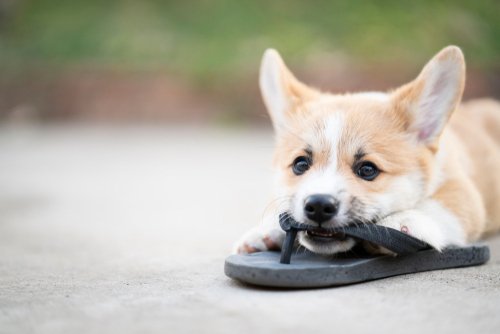May Puppy Tips: Easing Teething Pains the Right Way
May Puppy Tips: Easing Teething Pains the Right Way

Bringing home a puppy is one of the most exciting parts of spring. It is also a time of big changes for your growing pup. One common stage that surprises many new pet owners is teething. If your sweet little puppy has turned into a tiny chewing machine, there is a good reason for it. Just like human babies, puppies go through a teething process that can be uncomfortable and confusing at first. Learning how to support your puppy during this stage can help reduce stress for both of you.
When Teething Begins
Most puppies start teething around 12 to 16 weeks of age. During this time, they begin losing their baby teeth as their adult teeth come in. You may notice more chewing, drooling, and even a little bleeding from the gums. This stage can last until your puppy is about six months old.
Why Puppies Chew Everything
Chewing helps relieve the pressure and discomfort they feel in their mouths. It is a natural way for them to cope with the changes happening inside their gums. The key is not to stop the chewing, but to guide it in the right direction. Providing safe, puppy-friendly items to chew on can save your shoes, furniture, and fingers from becoming their favorite teething toys.
How to Help Your Puppy Feel Better
If your puppy is teething, try offering toys that are soft but durable. You can even chill some toys in the fridge to add a soothing, cool texture that eases sore gums. Frozen carrots or a damp washcloth can also work in a pinch, as long as they are always supervised. Be sure to choose size-appropriate items that are safe for young puppies to chew on.

Set Boundaries Early
This is also a great time to start teaching your puppy what is okay to bite and what is not. If they nip too hard during play, calmly redirect them to a toy. Avoid rough play or tug-of-war with their mouth, as it can confuse them during this sensitive time. The teething stage is the perfect opportunity to build good habits and encourage gentle behavior.
Signs to Watch For
Most teething symptoms are normal, but if your puppy refuses to eat, seems very uncomfortable, or has swollen gums that do not improve, reach out to your vet. Some discomfort is expected, but you want to be sure there are no other issues going on beneath the surface.

This Too Shall Pass
The teething stage does not last forever. In just a few short months, your puppy will have a full set of adult teeth and will likely be past the heavy chewing phase. Until then, stay patient, offer support, and give lots of love and encouragement. Watching your puppy grow and develop is one of the most rewarding parts of pet ownership.
If you are thinking about adding a puppy to your family, May is a wonderful time to prepare. Understanding the teething stage is just one part of helping your new puppy adjust and thrive. At The Puppy Palace in Glastonbury, we are here to help you every step of the way as you begin your journey with your new best friend.
